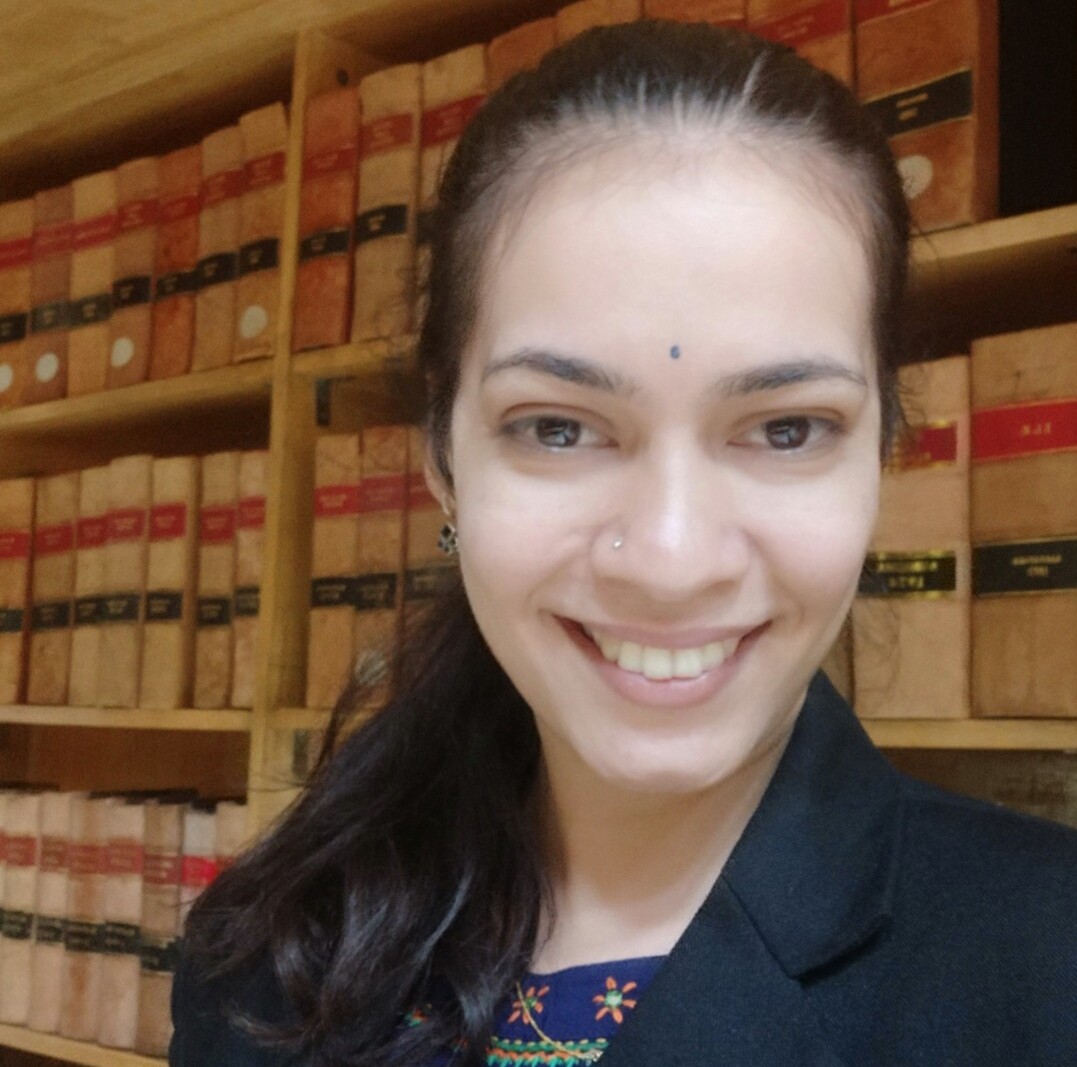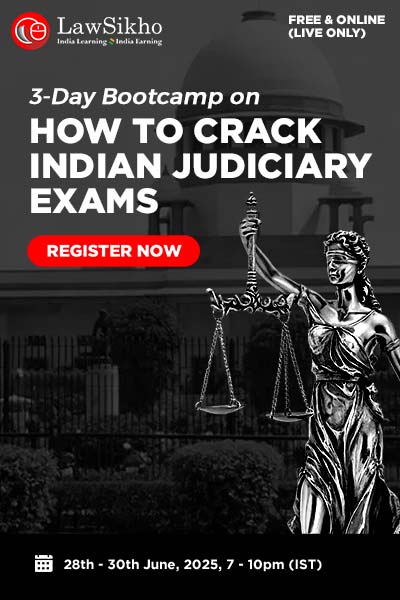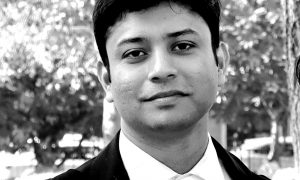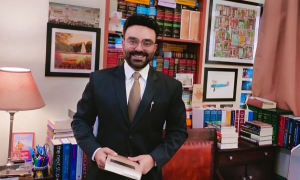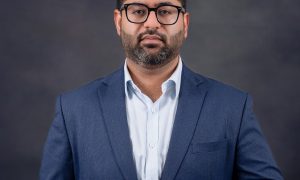This interview has been published by Anshi Mudgal and The SuperLawyer Team
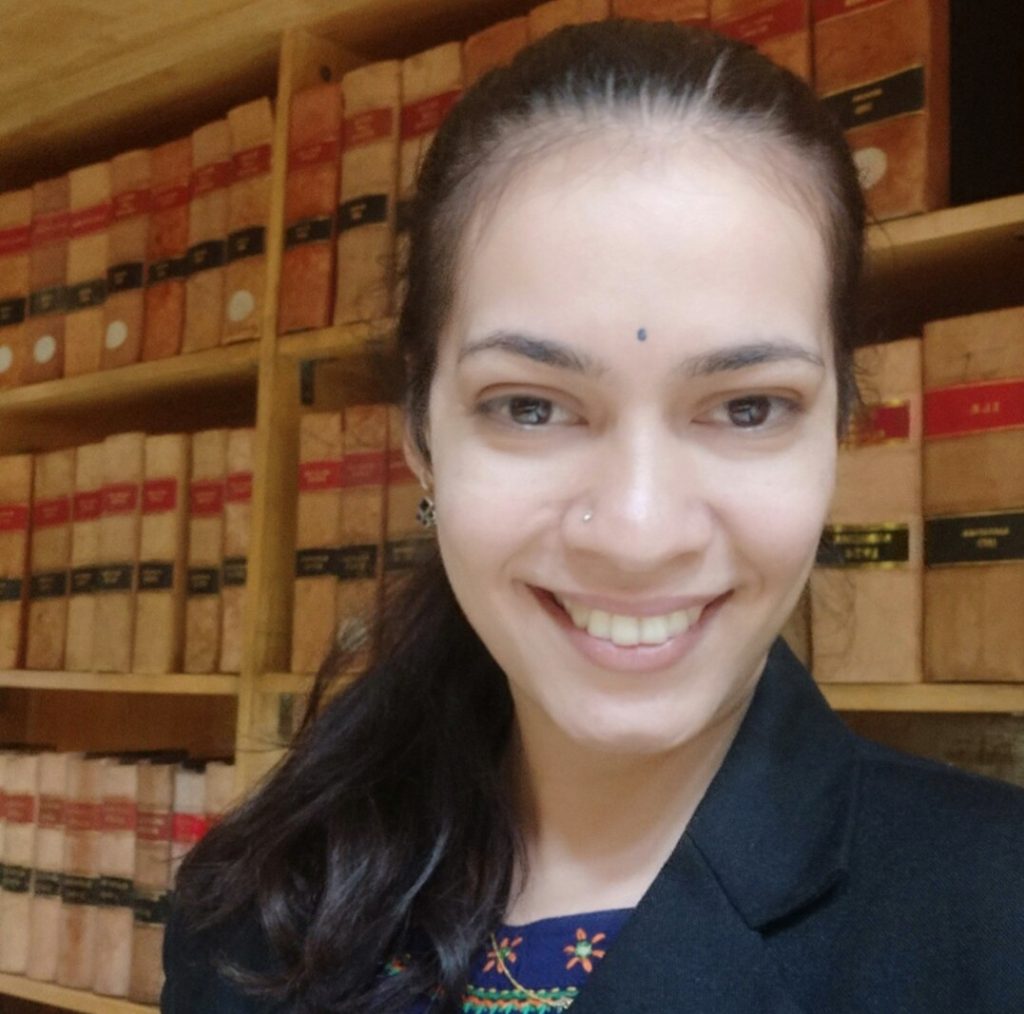
Can you tell us about your journey into the legal profession? What inspired you to become an advocate?
Unlike some, I didn’t grow up knowing I wanted to be an advocate. Initially, I didn’t see myself pursuing law. At the time, my interests lay elsewhere, and I hadn’t fully explored what a career in law could offer. But as I was exposed to legal studies/work/clerkship especially being with my father who is a retired District Judge and working with Hon’ble Justice Mrs. B V Nagarathna (now judge of the Apex Court), I began to appreciate the depth, challenge, and impact of the field. Over time, that curiosity grew into a genuine passion. Now, I’m not only confident that this is the right path for me, but I also find a real sense of purpose and satisfaction in it.
Also, my father, Mr. M Ramesh Rao, who served as a District Judge (now retired), has been a significant inspiration in my journey towards becoming an advocate. Growing up, I witnessed his deep commitment to justice, integrity, and the rule of law. His principled approach to decision-making and his respect for the legal system left a lasting impression on me. It made me realize the powerful role that legal professionals can play in upholding justice, which ultimately motivated me to pursue a career in advocacy. His dedication to justice and ethical standards inspired me to contribute meaningfully to the legal field in my own capacity.
In the initial phases of your career were there any mentorship experiences that played a key role in your development as a legal professional?
I was fortunate to work with Sri. C.V. Kumar and Smt Bhushani Kumar Advocates from Bengaluru and Sri. K L Patil, Advocate from Dharwad, where I gained hands – on experience in litigation and client handling. Also, their valuable mentorship experience helped me develop my legal research and courtroom preparation skills.
During my Clerkship under Hon’ble Justice B.V. Nagarathna was a transformative experience, through which I gained significant insights both ethically and professionally. I had the privilege of closely observing her judicial acumen, and commitment to justice. Her dedication and approach to the law have made a lasting impact on me.
Also I consider Hon’ble Justice Santosh Hegde as my role model. His exemplary career in the judiciary and his efforts in fighting corruption reflects values that I strive to uphold.
Law can be a very challenging field. Have you ever faced ethical dilemmas in your legal practice and if yes, how did you handle them? How do you maintain impartiality and professionalism when dealing with controversial and emotionally charged cases?
While I haven’t encountered a major ethical dilemma personally, I understand the importance of addressing them head-on. My approach would be to first consult the relevant rules of professional conduct, seek advice from more experienced colleagues if needed, and always prioritize honesty, fairness, and the law.
One such instance, I once worked on a matter where a client asked me to withhold certain facts from disclosure that I believed were material. This created a conflict between the duty of confidentiality and the duty of candor to the court. When they insisted, I withdrew from representation in accordance with ethical requirements.
I understand that dealing with controversial or emotionally charged situations requires a high degree of sensitivity and professionalism. I approach these cases by actively listening to all perspectives, focusing on facts rather than personal opinions and ensuring that all parties feel heard and respected.
Can you share what drove your decision to start your own legal practice and what were some of the biggest hurdles you encountered, and how did you manage them?
Since the year 2021, with God’s grace, I started my independent practice with my colleague/friend Akshata Sharma. Starting my own legal practice was driven by a strong desire for independence, professional growth, and the ability to serve clients on my own terms. I wanted to create a practice that reflected my values, personalized service, transparency, and client trust.
Honestly, I couldn’t have done it alone. I was fortunate to have a few close friends namely Vivek Kumar Pandey, Akshata Sharma, Meghana Muddurangappa and Smt.Padmaja Tadapatri (who holds a place in my life just like my mother does), and others from different professional backgrounds, who supported me through the process. Whether it was helping me set up the office, referring clients, or simply being a sounding board for ideas and doubts, their encouragement made a big difference.
Of course, the journey wasn’t without challenges. There were times I doubted myself, especially when things were slow. But those moments taught me persistence, adaptability, and the importance of building strong professional relationships. Overall, it was a transformative experience that strengthened me to build not just practice but also confidence, adaptability and a strong professional network.
What advice would you give to young aspiring advocates who wish to excel in the legal field as you and what resources would you suggest to them?
If I could give advice to young advocates, it would be to stay passionate and persistent. Advocacy is not always easy. Change can be slow and obstacles are inevitable, but keeping your passion alive will motivate you to keep going. Listening carefully to the people or communities you advocate for is crucial, as it ensures your work truly reflects their needs. I also believe that building a strong network and continuously learning about the issues and effective strategies strengthens your impact. Ultimately, every small step you take contributes to meaningful change, so stay encouraged and committed.
Youngsters in the legal profession should develop a ‘Never give up’ attitude, as perseverance is key to success in a challenging field that demands resilience, continuous learning and the ability to thrive under pressure. Setbacks, rejections and long hours are part of the journey, but those who stay committed, adapt and push through adversity, ultimately carve a meaningful and impactful career in law.
Also, at this outset, I would like to narrate an impactful example of Ekalavya and Karna from the Mahabharata in the context of young advocates struggling to enter legal practice. The story of Ekalavya from the Mahabharata deeply resonates with the journey of many young advocates today. Ekalavya was denied formal training by Guru Dronacharya, yet he didn’t give up. He created a statue of his guru and practiced with unwavering discipline in solitude. His dedication was so intense that he became an archer of extraordinary skill, purely through self-effort and inner discipline.
Similarly, many young advocates struggle to find mentors, chambers, or opportunities when they start. But like Ekalavya, those who stay committed—who read case law, attend court regularly even when they don’t have a brief, and keep learning by observing and self-study can build themselves into formidable professionals. The path is difficult, but if the focus and discipline are strong, success follows, just like it did for Ekalavya, even if recognition was delayed.
Likewise, the character of Karna from Mahabharata is also a powerful way to inspire them. Karna, born with great potential, but denied recognition because of his social identity. He was a warrior without a recognized lineage, constantly judged for his birth rather than his abilities. Much like Karna, many young advocates today may face barriers like lack of family background in law, absence of elite connections or starting from smaller towns or tier-2 colleges. But the story of Karna teaches us that your origin does not define your destiny. In the face of rejection, injustice and inner conflict, one can rise through resilience, discipline and unshakable belief in one’s abilities. Young advocates must remember, like Karna, your journey may be tough, but your courage can become your legacy.
What common misconceptions do people often have about the legal profession? Additionally, can you share a particularly challenging case that you’ve dealt with and how was your experience navigating the same?
One common misconception is that lawyers spend most of their time in dramatic courtroom battles, like on TV. In reality, a lot of legal work is behind the scenes, researching case law, drafting documents, negotiating settlements. I actually find that appealing because it emphasizes strategy and careful thought, which is what drew me to the profession in the first place.
To resolve the issue of litigation one should adopt STAR (Situation, Task, Action, Result) method. In one case, a client approached me with a boundary dispute with a neighbouring property owner. The issue was escalating quickly. Both parties were considering legal action over a small strip of land affecting fencing and access.
My task was to find a solution that avoided costly litigation. I reviewed the land titles, easement history, and surveyed documents. I then facilitated a joint meeting with both parties and their surveyors. I explained the legal standing clearly, but more importantly, I listened to both sides to identify practical needs.
I proposed a boundary adjustment agreement that allowed shared access through a revised easement and minor land transfer, which satisfied both sides. I also had the agreement recorded formally to prevent future disputes.
As a result, both parties avoided litigation, saved significant legal fees, and maintained a cordial neighbour relationship. The client was extremely satisfied and referred others to me afterwards.
Since you are serving as a High Court Government Pleader in the State of Karnataka, what is your understanding of the role of a government pleader/advocate? Kindly share your work experience as an advocate for the High Court Legal Services Committee?
My understanding is that a Government Pleader/ Advocate represents the Government in legal matters, particularly in Courts and Tribunals. Their primary role is to ensure that the Government’s position is presented clearly, accurately, and ethically. This includes drafting legal opinions, appearing in court, providing legal advice to Government departments, and ensuring that the rule of law is upheld in all actions taken by the Government.
A Government Advocate also has a broader duty to the public interest. Unlike private advocates, who serve individual clients, a Government advocate must balance the legal position of the State with fairness, justice, and constitutional values. Integrity, impartiality, and accountability are essential in this role.
I believe this position requires not only strong legal knowledge and advocacy skills but also a deep commitment to public service and ethical responsibility.
I was empanelled as an advocate with the High Court Legal Services Committee in the year 2020, for 5 years, during which I provided free legal assistance to marginalized individuals who could not afford representation. My primary responsibilities included drafting petitions, appearing before the High Court, and conducting legal counseling sessions.
I handled a diverse range of cases including criminal appeals, writ petitions for enforcement of fundamental rights, and bail matters. One significant experience was assisting a wrongly accused individual in securing bail after months of unlawful detention—a case that reaffirmed my belief in access to justice.
This role also involved working closely with jail authorities, NGOs, and court staff, which helped me develop strong interpersonal and procedural coordination skills. Despite time and resource constraints, I ensured every case was handled with diligence and empathy.
I was also appointed as an Amicus curiae by the Hon’ble High Court of Karnataka in various Criminal Appeals.
Overall, the experience deepened my understanding of public interest litigation and reinforced my commitment to pro-bono service, which I believe is integral to the profession.
Can you share your experience as an advocate for the Juvenile Justice Board appointed by CCL (Centre for Child and Law) and matters relating to iprobono?
During my time as an advocate with the Juvenile Justice Board and iProbono, I had the opportunity to work closely on cases involving children in conflict with the law, as well as those in need of care and protection.
At the Juvenile Justice Board, my role involved representing minors, ensuring that their rights under the Juvenile Justice Act were upheld, and advocating for rehabilitation over punishment. I often worked on drafting legal submissions, liaising with child welfare committees, and counselling children and their families.
Through iProbono, I worked on pro bono cases focused on child protection, particularly representing children in need of care and protection. I collaborated with multidisciplinary teams, including psychologists and social workers, to ensure a child-sensitive approach in legal proceedings.
These experiences not only deepened my understanding of child rights law and restorative justice principles but also strengthened my ability to communicate empathetically, work under pressure, and navigate complex legal frameworks with a focus on vulnerable populations.
I believe these experiences have made me a more compassionate and strategic legal professional, especially equipped to work in roles that intersect law and social justice.
What practical steps or habits have you found effective for managing stress and maintaining well being amidst the high demands of legal and consultancy work?
Legal and consultancy work can be fast-paced and mentally taxing. So I have found it essential to be pro- active about managing stress and well-being. One of the most effective habits for me is time-blocking and prioritizing tasks using a simple system like the Eisenhower Matrix. It helps me focus on what’s urgent VS important and rescues the feeling of being overwhelmed.
One principle that guides my work is rooted in the Bhagavad Gita: ‘Karmanye vadhikaraste ma phaleshu kadachana,’ which means, ‘You have the right to perform your duty, but not to the fruits of your actions.’ I try to follow this mindset at work — giving my full effort, staying committed, and letting the results follow. As an advocate, I believe in putting my complete effort into representing my clients with integrity and diligence, without getting attached to the outcome. The results, whether favourable or not, are often influenced by many factors beyond our control. What matters is that I uphold the law and my ethical responsibility.
Get in touch with Rashmi M Rao –

